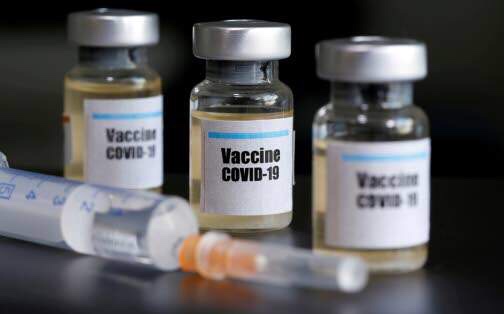
PARIS, France (AFP) — The halting of clinical trials for one of the most advanced experimental COVID-19 vaccines shows the importance of safety in developing new medicines despite overwhelming international pressure, experts said Wednesday.
Pharmaceutical giant AstraZeneca and the University of Oxford said Tuesday they were “pausing” trials of the vaccine after a volunteer developed an unexplained illness.
AstraZeneca said in a follow-up statement that a participant in Britain had been taken ill during large-scale Phase 3 testing.
It called the move to pause the trial “a routine action”, but the setback briefly spooked markets as the world races for a vaccine that could signal the beginning of the end of the pandemic.
“It’s a totally reasonable measure of caution,” immunologist Alain Fischer told AFP.
“This should be seen as the proper functioning of a vaccine evaluation system.”
The vaccine in question is one of nine that are undergoing the final phase of clinical testing, according to the World Health Organization (WHO).
Phase 3 trials see experimental vaccines tested among tens of thousands of volunteers to check if they are effective and safe on a large scale.
Fischer said an inquiry would determine if the volunteer in question got sick because of the vaccine or from something else.
“While we share with everyone the need to move fast, we can’t risk the safety of the (trial) participants,” Bruno Hoen, director of medical research at Paris’ Institut Pasteur, told AFP.
The WHO says there are currently 35 candidate vaccines for COVID-19 in human trials and another 145 in the pre-clinical stage.
“The more candidates we have that use different techniques, the greater the chance of having a vaccine that works and which is well-tolerated,” said Daniel Floret, vice-president of France’s technical committee for vaccines.
Ohid Yaqub, senior lecturer at the University of Sussex’s Science Policy Research Unit, said AstraZeneca’s pause may in fact end up benefiting the search for COVID-19 immunisation.
“Suspending the trial gives time to investigate whether the incident is related to the vaccine or is happening by coincidence,” he said.
“In some senses, it is good that such a routine event is being publicised because it helps to build trust as it provides an opportunity for people to see the procedures at work.”
Amid the frantic race, the European Medicines Agency sounded a note of caution.
It said that we may see no widely available vaccine for COVID-19 until “at least” the beginning of 2021.
In order to officially endorse it, the EMA said it “will need to have strong evidence from clinical trials on the safety, efficacy and the quality of this vaccine”.
( Source: Jamacia Observer)




